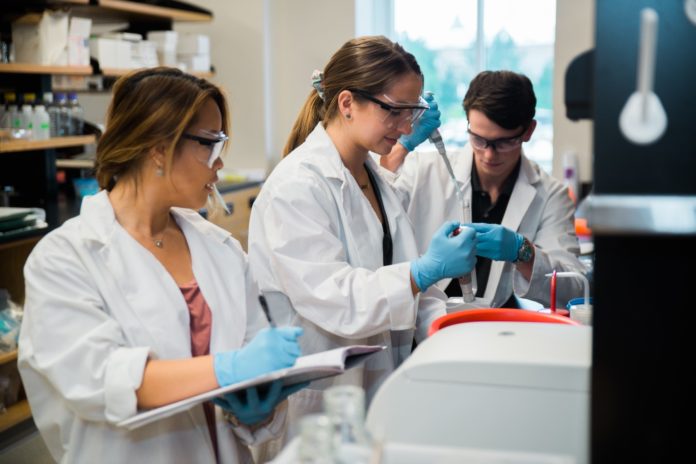This fall, 56 Mercer University sophomores will investigate ways to stop the formation of nasty biofilms that cause dental cavities and lead to many hospital-borne infections.
As part of the BOMM program, which combines biology, organic chemistry and mathematical modeling, the undergraduate students research, create and test drug compounds to prevent biofilms from forming.
Biofilm is a slimy build up produced by microorganisms like bacteria. The biofilm hides the bacteria, which can create an infection.
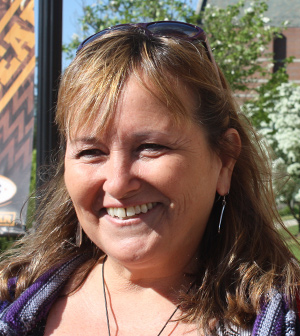
“It’s like (the bacteria is) hiding under Harry Potter’s invisibility cloak. The immune system can’t see them, so they can sit there and secrete toxins,” said Dr. Linda Hensel, professor and chair of the Biology Department in the College of Liberal Arts and Sciences.
Dr. Hensel directs “the BOMM” (pronounced like “bomb”), along with Dr. David Goode, associate professor of chemistry and director of biochemistry and molecular biology.
Dr. Hensel and Dr. Goode maintain a library of compounds for students to test each semester. Using that data, students create their own compounds and test them against five bacteria species.
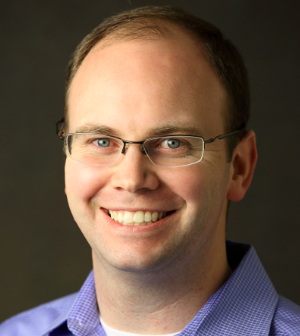
This method is different than the ubiquitous “cookbook lab” in which students follow directions like they would in a recipe.
“Cookbook labs don’t teach students the actual process of science,” Dr. Hensel said. “Cookbook labs give them the experience of doing things in the lab and discovery, but they don’t allow students to use their minds to think about what to do.”
In contrast, the BOMM is a course-based undergraduate research experience, known as a CURE, in which a class works together to ask research questions and then tackles those problems in the laboratory with their instructor.
“One of the coolest things that the BOMM offers students — and that I loved — was the opportunity to work with some crazy microbes that you hear about in everyday life. You get to work with staph; you get to work with strep; you get to work with E. coli and some of those bugs that you hear about,” said Luke Jones, a senior majoring in neuroscience and former BOMM student and teaching assistant.
“We got to really just immerse ourselves in the science. And that’s something that you don’t necessarily get in the traditional lab.”
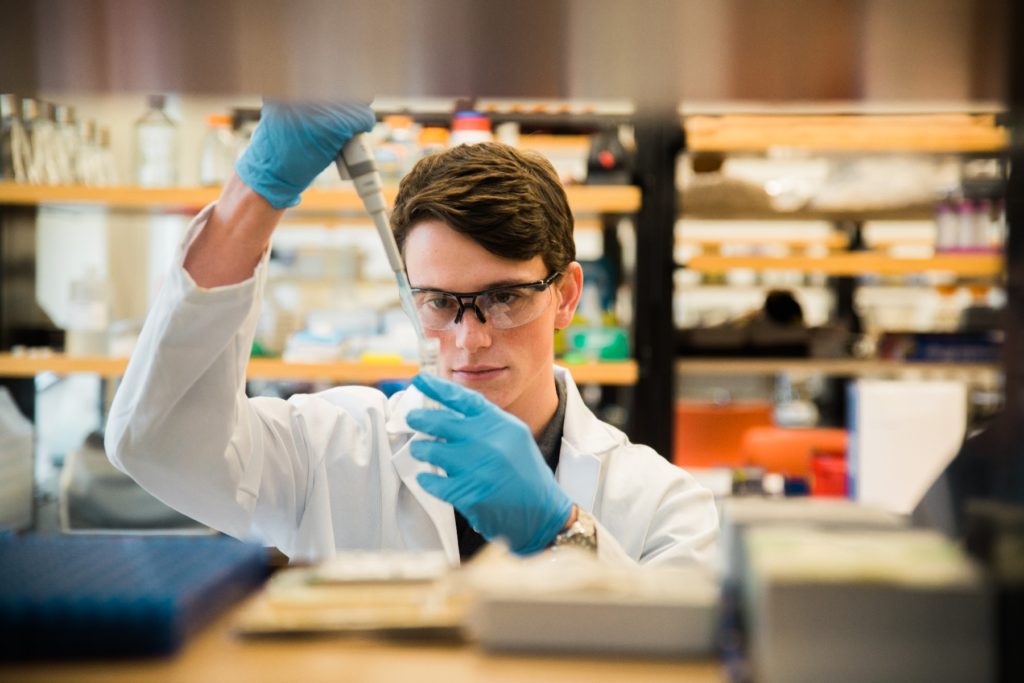
Making classwork relevant
When he was an undergraduate student at Mercer, Dr. Goode studied chemistry under Dr. Scott Davis, who is now the University’s provost. At the time, Dr. Davis taught an organic synthesis class in which students synthesized organic molecules.
“They would come up with a molecule that they wanted to make, and they would spend their whole second semester synthesizing it,” Dr. Hensel said. “That was the favorite part for many students.”
Inspired by that class, the BOMM takes it a step further.
“The key we found was linking organic chemistry with biology because students can synthesize all the drugs they want, but seeing the effect they have — like in our case, inhibiting bacteria from making that nasty, virulent biofilm — is what turned them on academically, and it made them study more in not only chemistry but also biology,” Dr. Hensel said. “They saw the relevance of what they were learning in the classroom.”
Students take the BOMM the first semester of their sophomore year. This gets them into the lab earlier than most undergraduates, who typically don’t start research until their junior or senior year, Dr. Goode said.
“I wanted to build an experience for students based off of what really drove me when I was in undergrad,” he said. “I spent time in the research lab the whole time I was at Mercer.”
Combining biology and organic chemistry also helps students make connections between the subjects. Prior to the BOMM, Dr. Goode found students in his biochemistry class had a hard time connecting the two.
In addition, students who participate in the BOMM appear to perform better than their peers in related upper-division courses.
“There are about five upper-division classes that the BOMM feeds into,” Dr. Hensel said, “and those faculty come to me probably once or twice a month and say, ‘Boy those BOMM kids really are smart. Boy those BOMM kids really are engaged. They understand why all this material is relevant to real life.’”
Gabby Longway, a senior majoring in biochemistry and molecular biology and a former BOMM student and teaching assistant, said Dr. Hensel and Dr. Goode push their students to think for themselves.
“We were able to design our own compounds and take what we thought would work best with their guidance, but they really pushed us to do that on our own,” she said.
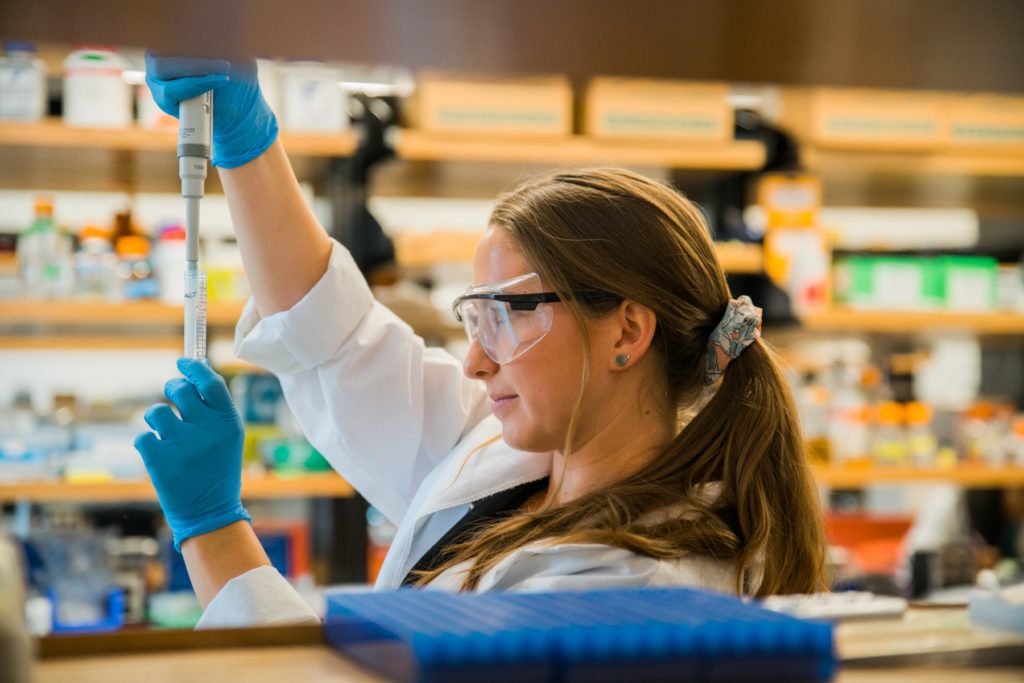
Inspiring students
Mercer’s Quality Enhancement Plan (QEP) provided funding for the program, including the development of the labs for the first cohort in 2015.
“QEP also funded an ethics component to the class, covering three main topics: how “big pharma” works, how the U.S. Food and Drug Administration regulates drugs, and the increase in antibiotic resistance,” Dr. Hensel said.
“Putting in those three components connected science to the real world in a way that I never would have done had I not gotten that QEP funding.”
As a result, several students now are pursuing M.D./Ph.D. programs.
“They don’t just want to practice medicine. They want to drive the questions that medicine needs answered to practice more effectively, and so they want to do the research in addition to practicing medicine,” Dr. Hensel said.
Longway and Jones are two of those students.
“The BOMM really, for me, opened the door to medical research,” Jones said.
Ethics studies on antibiotic resistance showed him how the science he was doing in the classroom could impact the community, including underserved areas and minorities.
“The BOMM teaches you that medicine is progressive,” he said. “Medicine is not stagnant, and it’s the people who are willing to go and figure that out who are going to be the ones that end up making the changes to the textbook.”
Longway said she wants to go into translational research, which is “taking science that has been discovered at the bench and then translating it into bedside treatments and clinical treatments that can help patients.”
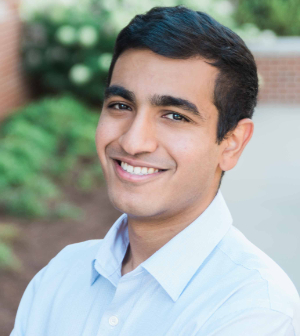
“Through the BOMM program and my time researching with Dr. Hensel, I’ve come to find that there are a lot of scientific discoveries that have yet to be translated into medical practice, and I think it’s really important that we use what has already been discovered to improve the lives of patients,” Longway said.
Sahan Vangala, a junior majoring in neuroscience, participated in the BOMM last year. He’s hoping to eventually attend medical school, but the BOMM also piqued his interest in public policy.
“I like how the program wasn’t just focused on teaching us research methods. It wasn’t just teaching us procedures. It was teaching us about everything that goes into research, like the social impact,” he said. “It taught us a very holistic outlook on research.”

